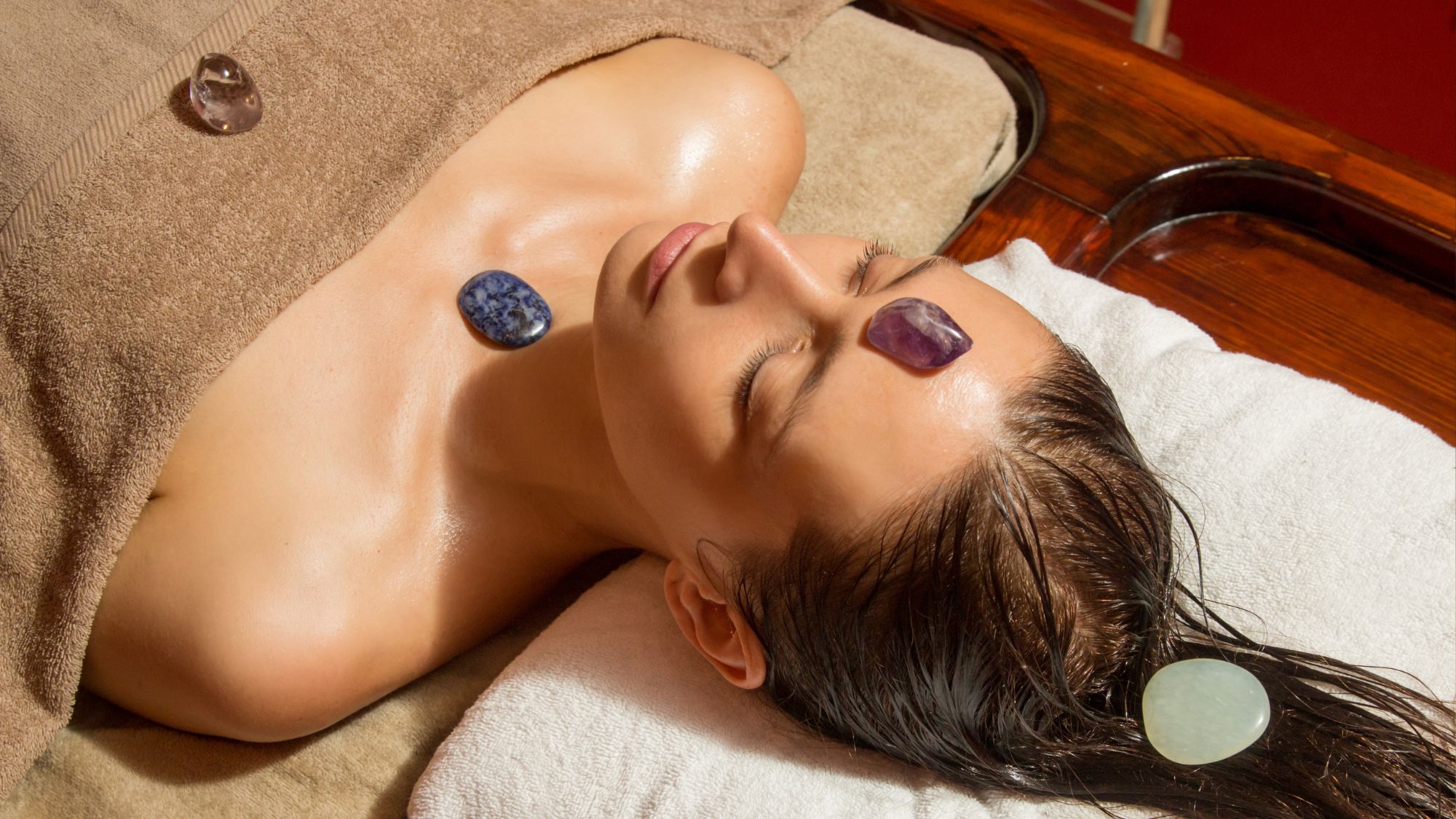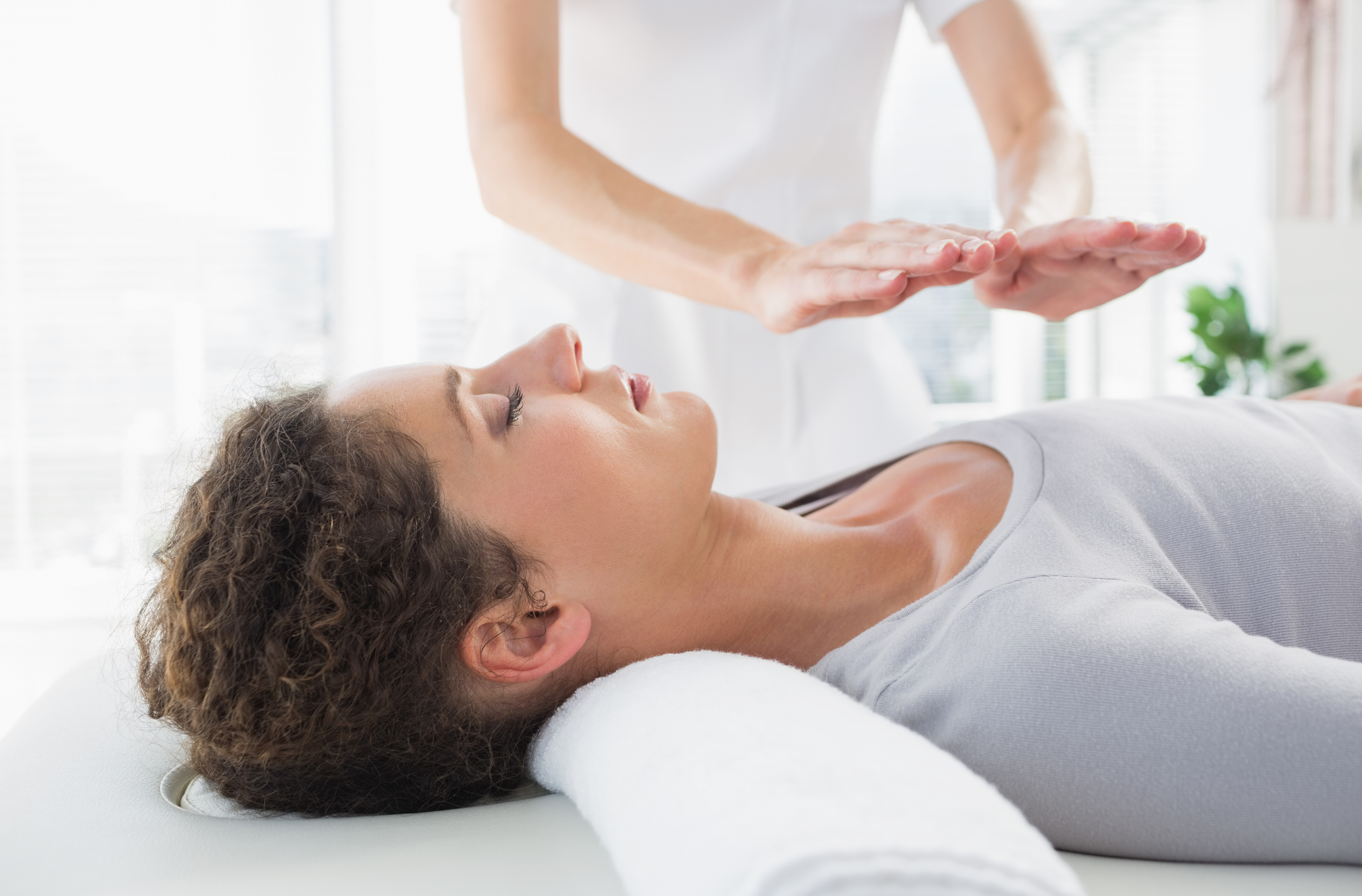
If you're someone who's tried alternative therapies like acupuncture or cold water therapy, then you might have heard of - or tried - reiki healing.
An ancient Buddist practice that was rediscovered in Japan in the mid-1800s, Reiki is a form of energy healing. Based on an ancient Eastern belief, Reiki claims to direct universal energy called "chi" and sees practitioners use palm-to-palm or hands-on healing to direct said energy around your body.
While the International Association of Reiki Professionals (IARP) website states that Reiki doesn't cure ailments, first-person accounts swear that it's helped alleviate symptoms of depression, anxiety, insomnia and more.
It's an alternative therapy - that is, there's no empirical evidence per se that "chi", the "life force," actually exists. That said, it has been practiced for years, as expert and Reiki master Lisa Butcher, who practices herself, points out.
To get a better understanding, we asked her to share her wisdom. Here, she shares what Reiki is, how it works, and what the main benefits are, too, plus why it works for her. Don't miss our guides to EFT tapping and breathwork training, while you're here.
Your guide to Reiki healing, from a Reiki master
What is Reiki?
According to the therapist, Reiki is a therapy designed to heal. The term “Reiki” comes from the Japanese words “rei,” meaning universal, and “ki,” meaning vital life force that flows through all living things.
It involves encouraging a healthy flow of energy in the body to lower stress and promote healing, she continues.
Celebrity news, beauty, fashion advice, and fascinating features, delivered straight to your inbox!
Can I practice Reiki on myself?
A bit like a massage or physio session, you can practice Reiki on yourself, but you'll likely benefit from them more if you visit a qualified practitioner. To practice on yourself, you simply need to be "attuned" to Reiki, shares the expert.
Wondering how long you'll be in the treatment room for? "A treatment usually lasts between 60 to 90 minutes," she adds.
How does Reiki work?
So, how does it actually work? Good question. "Reiki practitioners use a technique called palm healing or hands-on healing," shares the expert. "This involves universal energy being transferred through the palms of the practitioner to the patient in order to encourage emotional or physical healing."
A standard Reiki session will normally follow the below stages.
- The patient lies down, fully clothed.
- The practitioner will start practicing reiki healing on you - that is, moving their palms around and practicing palm healing (watch the video below to get a feel for a virtual form of it).
- Some patients feel a heat or warmth throughout their body when being treated or a slight tingling sensation.
A post shared by Lisa Butcher 🧿 (@lisabutcherofficial)
A photo posted by on
Reiki benefits: 8 to know about
People who have experienced a reiki treatment can expect:
- Improved mood
- Improved emotional well-being
- Reduced stress
- Increased relaxation
- Better sleep
- Lower blood pressure
- Reduced anxiety
- Reduced pain rates.
"It’s ideal for people undergoing surgery because of the last three," shares Butcher.

Is there evidence that Reiki works?
Do note here, though, and as above, it's always suggested that Reiki is used alongside conventional medicine and treatments, as an alternative therapy.
That's not to say there's no research on the benefits of Reiki - as Butcher shares, "research attempts have been and continue to be mad2." That said, the research is just at the beginning, she explains.
The National Centre for Complementary and Integrative Health (NCCIH) of the National Institutes of Health (NIH) has completed five studies looking at Reiki's ability to benefit people with diabetes, advanced AIDS, prostate cancer, fibromyalgia, and stress.
"Other published studies have looked at the effect of Reiki on measures of stress hormones, blood pressure, heart rate, and immune response, and on subjective reports of anxiety, pain and depression. The studies to date are typically small, and not every study is well-designed. However, overlapping data from some of the stronger studies support the ability of Reiki to reduce anxiety and pain, and suggest its usefulness to induce relaxation, improve fatigue and depressive symptoms, and strengthen overall wellbeing," she shares.
What does Butcher love about Reiki personally? "I use Reiki on myself to help get back to sleep if I wake up in the middle of the night," she explains. "I set myself up in a quiet room, grounding myself before doing any energy work. I imagine myself lying like a large oak tree with roots coming out the bottom of my feet spreading downwards and sideways, rooting myself to the ground."
"This helps me to feel calm, grounded and relaxed," she continues.
5 Reiki principles
The five main principles of Reiki are:
- I will not worry
- I will not be angry
- I will do my work honestly
- I will be grateful for my many blessings
- I will be kind to all living things.
These can then serve as mantras for you to carry throughout your day-to-day.
Butcher's advice. "Try it and see - what’s the worst that can happen?"
What do you reckon? Will you be giving it a go?

Ally is Marie Claire UK's Senior Health and Sustainability Editor, a well-regarded wellness expert, ten-time marathoner, and Boston Qualifying runner.
Utilising her impressive skillset and exceptional quality of writing, she pens investigative, review and first-person pieces that consistently demonstrate flair and originality.
As well as writing, Ally manages a team of freelancers, oversees all commissioning and strategy for her pillars, and spearheads the brand's annual Women in Sport covers, interviewing and shooting the likes of Mary Earps, Millie Bright, and Ilona Maher. Shortlisted for three BSMEs and winning one in 2022, Ally lives and breathes her verticals: her eye for a story and connections within the wellness sphere are unrivalled. Follow Ally on Instagram for more.
